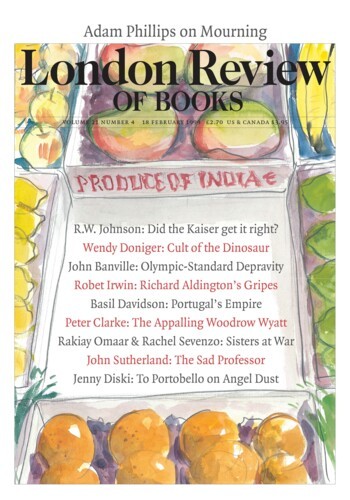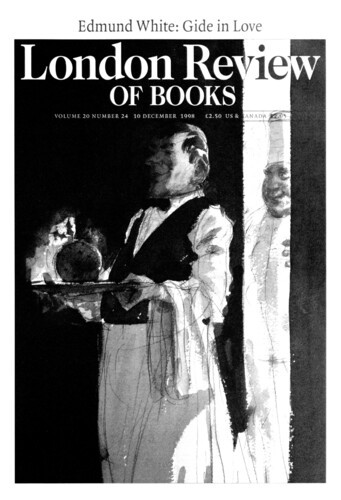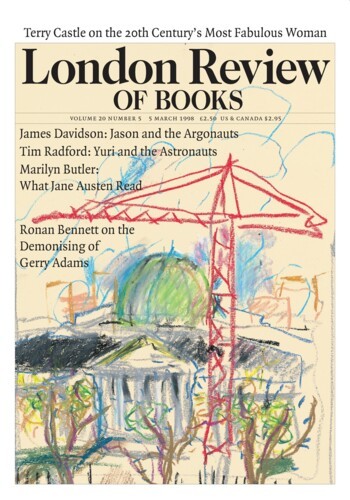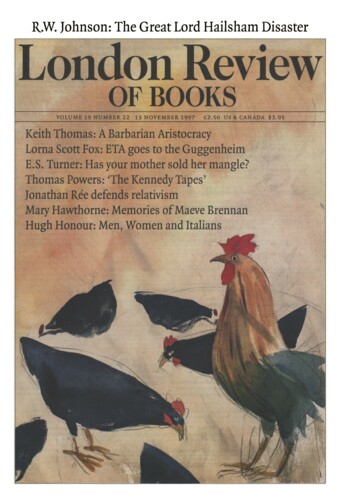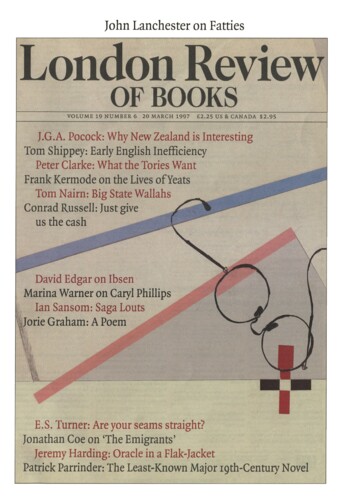On the Blower: the Journals of Woodrow Wyatt
Peter Clarke, 18 February 1999
Sensitive and introspective persons keep a journal secure in the knowledge their secrets will never be exposed to public scrutiny. This was hardly why, in 1985, the former Labour MP Woodrow Wyatt began his diary. Sir Woodrow, having then served for nearly a decade as chairman of the Horserace Totalisator Board, had yet to reach his apotheosis with the life peerage that validated his sobriquet, Lord Toad of Tote Hall. Confidant of Margaret Thatcher, columnist in the News of the World, professional diner-out and social climber, Wyatt spotted his opportunity. His diary would be a secret but was, from the outset, intended for publication. Its rationale was as a nice little earner.
